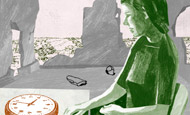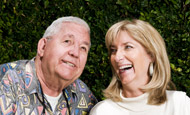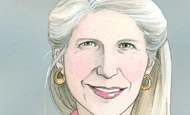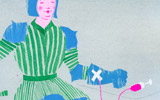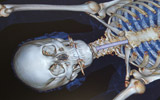
Special Report
Surviving survival
The journey continues
Summer 2011
BACK ISSUES
Online versions of the magazine from 1999 to present are still accessible. BACK ISSUES »


Download Printable Issue (PDF)
Chimp change
Humans are clearly different from chimpanzees. The question is, why? According to researchers at the School of Medicine, it may boil down in part to what we donít have, rather than what we do. MORE . . .
Bladder matters
Unlike its workhorse neighbor, the intestine, it doesnít need a lot of fussy cell division to get the job done. But when the bladder becomes infected, it launches a massive, scorched-earth attack, sloughing off the innermost layer of cells to keep invading bacteria from latching onto and burrowing into its inner lining. MORE . . .
Rejection detection
Heart transplant recipients and their physicians are likely more concerned with the function of the donated organ than with the donor’s DNA sequences that tag along in the new, healthy tissue. However, researchers at the School of Medicine have shown that an increase in the amount of the donor’s DNA in the recipient’s blood is one of the earliest detectable signs of organ rejection. MORE . . .
Stem cell PhD
Beginning in the fall of 2012, Stanford will offer what officials believe is the first PhD program devoted solely to stem cell science in the nation and, perhaps, the world. Prospective students can begin applying this fall. MORE . . .
Embryo imbroglio
Itís a waste. People who have completed in vitro fertilization procedures usually have leftover embryos, and they usually discard them. Meanwhile, scientists studying human development or stem cells would love to use those embryos for research. MORE . . .
Letter from the dean
Caring for survivors
THE BACKSTORY
Holy insulin shock, Batman!
LETTERS TO THE EDITOR

